關于新疆的24個謊言與真相 Fact Check: Lies on Xinjiang-related issues versus the truth
新華網 2021-02-07 09:54

謊言十三:中國政府把新疆少數民族兒童送進寄宿制學校,“強迫”其與父母分離。
Lie No. 13: The Chinese government sends children of ethnic minorities in Xinjiang to boarding schools and "forces" them to be separated from their parents.
事實真相:
Fact check:
◆《中華人民共和國義務教育法》規定:“縣級人民政府根據需要設置寄宿制學校,保障居住分散的適齡兒童、少年入學接受義務教育”。新疆地域遼闊,村鎮之間距離較遠,學生上學很不方便,學習質量難以保證,家長接送孩子上下學負擔很重。為解決這一問題,早在上世紀80年代,新疆就建設了400所寄宿制中小學。近年來,新疆維吾爾自治區與全國一樣,按照國家要求對寄宿制學校建設進行科學規劃、合理設置,嚴格遵守國家和自治區相關建設標準,各類學習生活設施設備齊全。實踐證明,開展寄宿制教育,已成為新疆加快教育現代化、助力精準脫貧的有力舉措,受到各族學生家長的積極擁護。
The Compulsory Education Law of the People's Republic of China stipulates: "Where necessary, the people’s government at the county level may set up boarding schools to ensure that school-age children and adolescents who are dwelling in scattered areas receive compulsory education." Xinjiang is a vast region with long distances between villages and towns, and it is not convenient for some students to go to school, making it hard to ensure their study quality. Parents have a heavy burden to transport their children to and from schools. To solve this problem, Xinjiang built 400 primary and secondary boarding schools in the 1980s. In recent years, Xinjiang, like the rest of the country, made scientific plans and reasonable arrangements for boarding school construction. They comply with the relevant construction standards of the state and the autonomous region to ensure sufficient learning and living facilities. Time has proved that boarding education has become an effective measure to accelerate education modernization and aid targeted poverty alleviation in Xinjiang. Parents of students of all ethnic groups support the boarding school model.
◆新疆寄宿制學校建設是新疆從自治區實際出發,采取的一項旨在教育扶貧、提高義務教育質量的安排,有助于提高少數民族中小學校教育現代化水平,促進新疆各民族的交往交流。新疆開辦寄宿制學校的做法,與中國其他地區,與世界其他國家開辦此類學校沒有本質不同。
-- The construction of boarding schools is an arrangement made by Xinjiang in light of the actual conditions of the autonomous region to alleviate poverty through education and improve the quality of compulsory education. It helps improve education modernization at primary and secondary schools of ethnic minorities and promote exchanges among different ethnic groups in Xinjiang. The practice here is not fundamentally different from that of other parts of China or the rest of the world.
?
謊言十四:新疆學校用漢語取代民族語言,對他們進行“洗腦”。新疆禁止少數民族學生使用本民族語言,關閉維吾爾語學校。
Lie No. 14: Schools in Xinjiang replace ethnic languages with Chinese to "brainwash" the students. Xinjiang has banned ethnic minority students from using their own languages and closed schools of the Uygur language.
事實真相:
Fact check:
◆《中華人民共和國憲法》《中華人民共和國國家通用語言文字法》規定,公民有學習和使用國家通用語言文字的權利,國家為公民學習和使用國家通用語言文字提供條件。新疆在推進國家通用語言文字教育的同時,按照國家中小學課程設置方案要求,也開設了少數民族語言文字課程,充分保障了少數民族學生學習本民族語言文字的權利,有效促進了少數民族語言文化的傳承發展。
The Constitution of the People's Republic of China and the Law of the People's Republic of China on the Standard Spoken and Written Chinese Language stipulate that citizens have the right to learn and use the standard Chinese spoken and written language. The state provides them with related conditions. While promoting education in the Chinese language, Xinjiang also offers courses in the spoken and written languages of ethnic minority groups in accordance with the national curriculum plan for primary and secondary schools. This safeguards the right of students from ethnic minority groups to learn their own spoken and written languages. It also effectively promotes the inheritance and development of ethnic minority languages and cultures.
◆新疆維吾爾自治區使用7種語言開展中小學教育。目前,新疆在學前和中小學全面普及國家通用語言文字教學、加授本民族語言文字的雙語教育。學會使用國家通用語言文字,可以更好地融入和適應現代社會,不論學習、找工作,還是交流對話、經商務工都會有更多的便利。
-- Primary and secondary education in Xinjiang is conducted in seven languages. At present, preschools and primary and secondary schools across Xinjiang provide bilingual education in the national standard spoken and written language, as well as one ethnic language. Learning to use the national standard language can help people better integrate and adapt to modern society. It brings more convenience in studies, job hunting, communication, business, and work.
?
謊言十五:新疆以打擊恐怖主義為借口鎮壓少數民族。
Lie No. 15: Xinjiang suppresses ethnic minorities under the pretext of fighting terrorism.
事實真相:
Fact check:
?
◆據不完全統計,自1990年至2016年年底,民族分裂勢力、宗教極端勢力、暴力恐怖勢力在新疆策劃實施了數千起暴力恐怖案(事)件,造成大量無辜群眾被害,數百名公安民警殉職,財產損失無法估算,給新疆各族人民帶來了深重災難。
?Incomplete statistics show that from 1990 to 2016, ethnic separatists, religious extremists, and violent terrorists plotted and conducted several thousand violent terrorist acts. They killed many innocent civilians and several hundred police officers and caused immeasurable property losses. These terrorist activities inflicted untold suffering on the people of various ethnic groups in Xinjiang.
◆面對嚴峻復雜的反恐形勢和各族群眾對打擊暴力恐怖犯罪、保障生命財產安全的迫切要求,中國新疆積極響應《聯合國全球反恐戰略》等一系列反恐文件,依照國家反恐法律和自治區相關法律法規,堅持不與特定地域、民族、宗教掛鉤,對侵犯公民人權、危害公共安全、破壞民族團結、分裂國家的暴力恐怖活動進行嚴厲打擊。自2014年以來,共打掉暴恐團伙1588個,抓獲暴恐人員12995人,繳獲爆炸裝置2052枚,極端主義滲透得到有效遏制,社會治安狀況明顯好轉,最大限度保障了各族人民的生命權、健康權、發展權等基本權利,新疆已連續4年多未發生暴力恐怖案件。
-- In the face of a complicated counter-terrorism situation and the demands from people of all ethnic groups to stop terrorism, China's Xinjiang region has taken a series of active measures. Responding to the United Nations Global Counter-Terrorism Strategy and other counter-terrorism resolutions, Xinjiang has upheld the principle of not linking terrorism with any particular region, ethnic group, or religion. It acted within the law to crack down on violence and terrorist activities that violate human rights, endanger public security, undermine ethnic unity, and aim at separating the country. Since 2014, a total of 1,588 violent and terrorist groups have been taken out, 12,995 violent terrorists arrested, and 2,052 explosive devices seized. Such operations have effectively curbed the infiltration of extremism, significantly improved public security, and protected the right to life, right to health, right to development, and other basic rights of people of all ethnic groups. Xinjiang has reported no violent terrorist cases for more than four consecutive years.
?
謊言十六:新疆實行“訪惠聚”舉措,“民族團結一家親”和民族團結聯誼等活動是為了介入并監視維吾爾家庭。
Lie No. 16: The "fanghuiju" campaign, in which civil servants are dispatched to grass-roots communities to offer help to people of various ethnic groups, as well as the "ethnic unity campaign" and solidarity activities among cadres and people of different ethnic groups, are all adopted by Xinjiang with the aim of intervening in and monitoring Uygur families.
事實真相:
Fact check:
?
◆2016年以來,新疆在各族干部群眾中開展“民族團結一家親”和民族團結聯誼活動,110多萬各族干部職工與160多萬各族群眾結對子、交朋友、認親戚,其中既有漢族干部與包括維吾爾族在內的少數民族群眾結對認親,也有包括維吾爾族干部在內的少數民族干部與漢族群眾結對認親。
?Xinjiang has been carrying out the "ethnic unity campaign" and solidarity activities among cadres and people of different ethnic groups since 2016. More than 1.1 million cadres and workers of different ethnic groups have paired up with 1.6 million people of different ethnic groups as "relatives" and made friends with each other. Among them, Han cadres have paired up with ethnic groups, including the Uygur. Cadres of ethnic minority groups, including the Uygur, have also paired up with Han people.
◆各族干部群眾交往交流交融,相互尊重,相互幫助,廣大干部職工充分發揮自身特長優勢,積極引導基層群眾拓展致富門路,幫助他們解決就醫、就業、就學等生產生活中的實際困難,辦了許多得民心順民意的好事實事。據統計,參加“民族團結一家親”和民族團結聯誼活動的干部職工為基層群眾捐款9.4億元,捐物4921萬件,辦好事實事1803萬件。
-- Based on mutual exchange, communication, integration, respect and help, cadres and workers of different ethnic groups have given full play to their own advantages, guiding the grass-roots residents to expand their approaches to prosperity, and helping them solve difficulties in healthcare, employment and education, and doing many good deeds that have won public support. According to the statistics, the cadres and workers participating in the "ethnic unity campaign" and solidarity activities among cadres and people of different ethnic groups have donated 940 million yuan and more than 49 million material items to the grass-roots people, accomplishing some 18 million deeds that benefit locals.
?
謊言十七:新疆通過無處不在的攝像頭、手機APP、互聯網綜合信息等高科技手段監控維吾爾族穆斯林。
Lie No. 17: Xinjiang monitors Uygur Muslims through ubiquitous cameras, mobile phone apps, the internet and other high-tech means.
事實真相:
Fact check:
◆新疆依法在城鄉公共區域、主要道路、交通樞紐等公共場所安裝攝像頭,目的是為了提高社會治理水平、有效預防和打擊犯罪,這些措施增強了社會安全感,得到了各族群眾的普遍支持。相關措施不針對任何特定民族。
In accordance with the law, Xinjiang has installed cameras in urban and rural public areas, major roads, transportation hubs and other public places in order to improve social governance and effectively prevent and crack down on crime. These measures have enhanced social security and won widespread support from people of all ethnic groups. The measures do not target any particular ethnic group.
◆運用現代科技產品和大數據方法提升社會治理水平是國際社會通行做法。根據《南華早報》報道,最新研究發現,監控攝像頭數量排名全球前十的國家包括英國、德國、法國、荷蘭等。
-- The use of modern scientific and technological products and big data to improve social governance is a common practice in the international community. According to the South China Morning Post, a new study found that Britain, Germany, France and the Netherlands are among the top 10 countries in terms of the number of surveillance cameras in the world.
?
謊言十八:中國駐外使領館不為海外維吾爾族人換發護照,迫使其回國接受法外拘留或監禁。
Lie No. 18: Chinese embassies and consulates have refused to renew the passports of overseas Uygur people, forcing them to return home to face extrajudicial detention or imprisonment.
事實真相:
Fact check:
◆中國公民的人身自由和出入境權利依法受到保護。只要屬于中國籍公民,且自己承認是中國公民,未違反中國法律法規的,均可向居住地的中國使領館申請換發或補發護照。
Chinese citizens' personal freedom and rights of exit and entry are protected by law. As long as they are Chinese nationals and admit themselves that they are Chinese citizens, and do not violate Chinese laws and regulations, they can apply to the Chinese embassy or consulate where they live for the renewal or replacement of passports.
◆中國駐外使領館按照《中華人民共和國出境入境管理法》《中華人民共和國護照法》等法律法規辦理相關業務,依法保障包括各民族在內的海外華僑華人合法權益。向中國駐外使領館提出換發或補發護照申請的中國新疆籍人員,經審批符合有關法律的,已獲得受理并批準。
-- Chinese embassies and consulates conduct their services in accordance with the Exit and Entry Administration Law of the People's Republic of China, the Passport Law of the People's Republic of China and other laws and regulations to protect the legitimate rights and interests of overseas Chinese of different ethnic groups. Chinese citizens from Xinjiang who apply for the renewal or replacement of passports at Chinese embassies and consulates have been accepted and approved after being examined to comply with relevant laws.









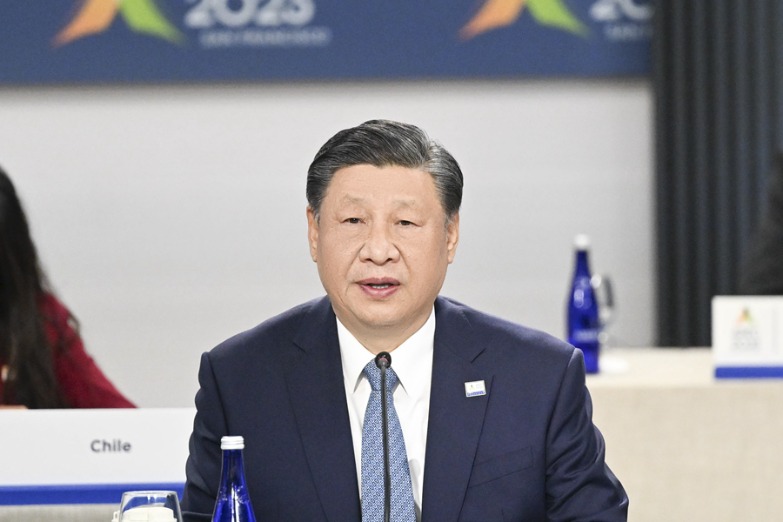
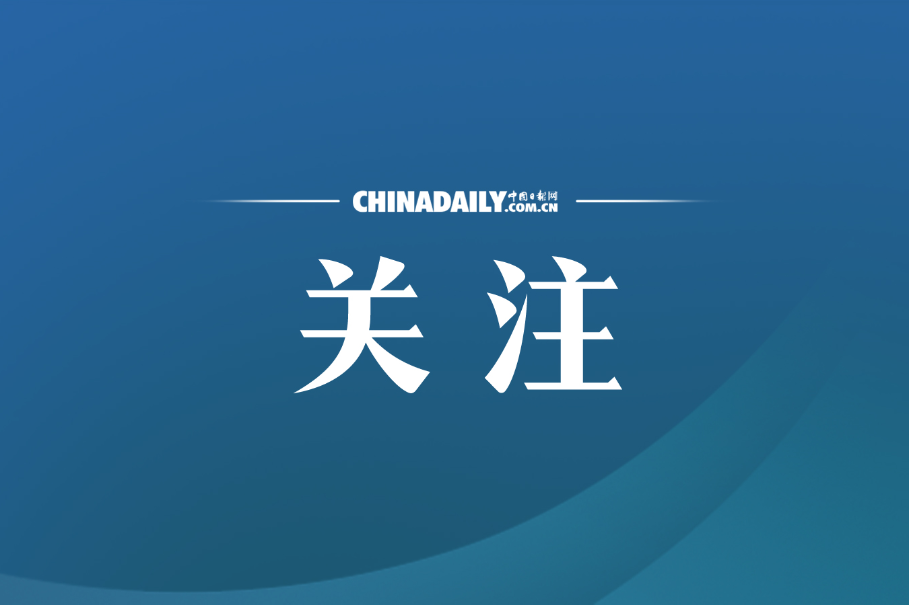
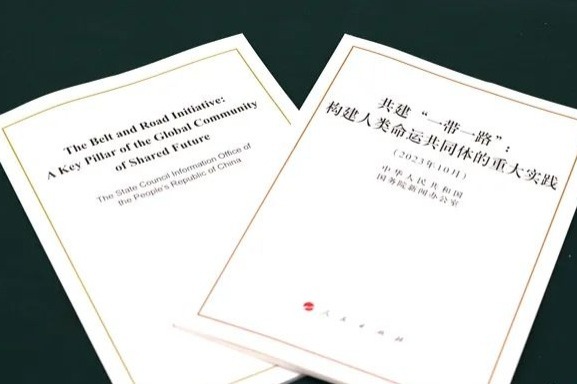
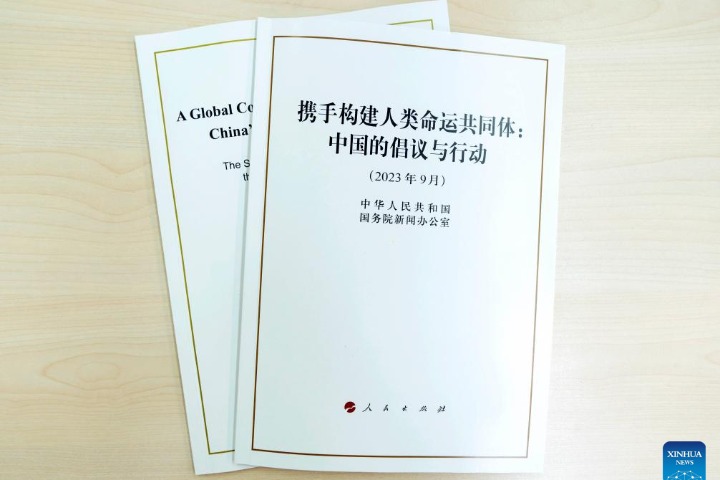
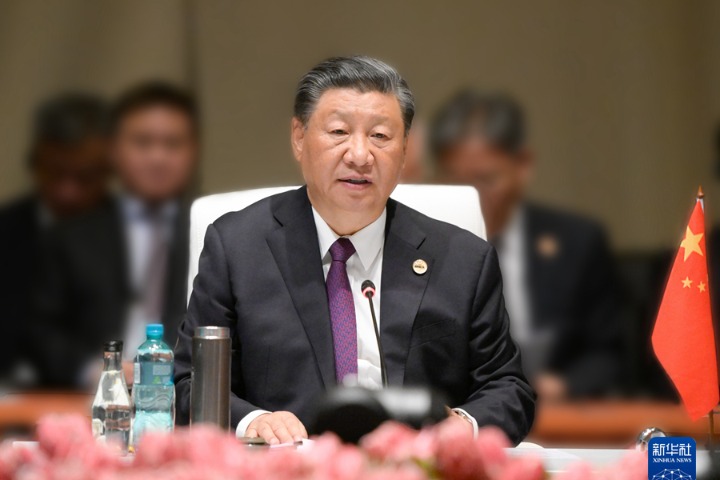



 英語點津微信
英語點津微信 雙語小程序
雙語小程序